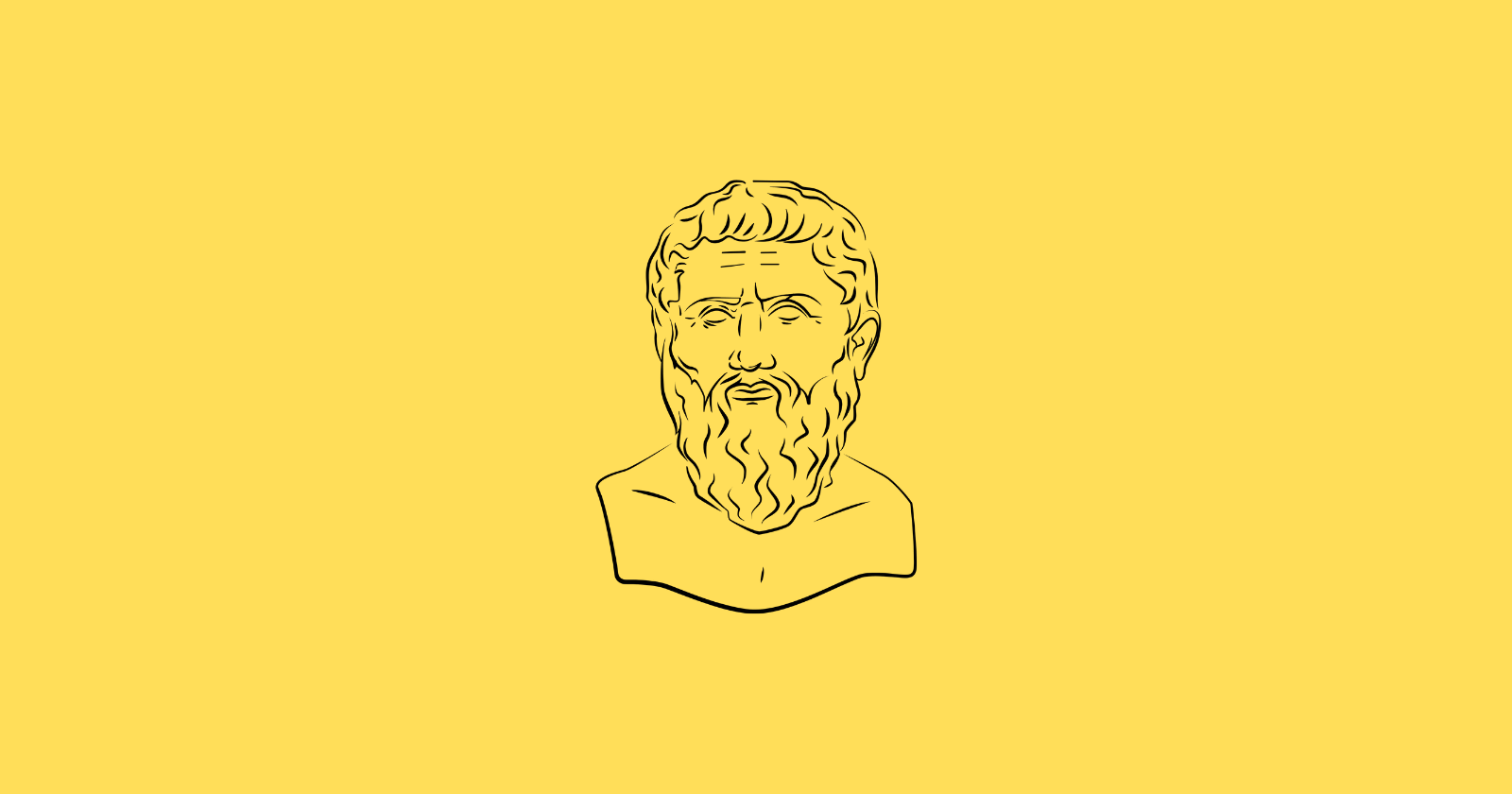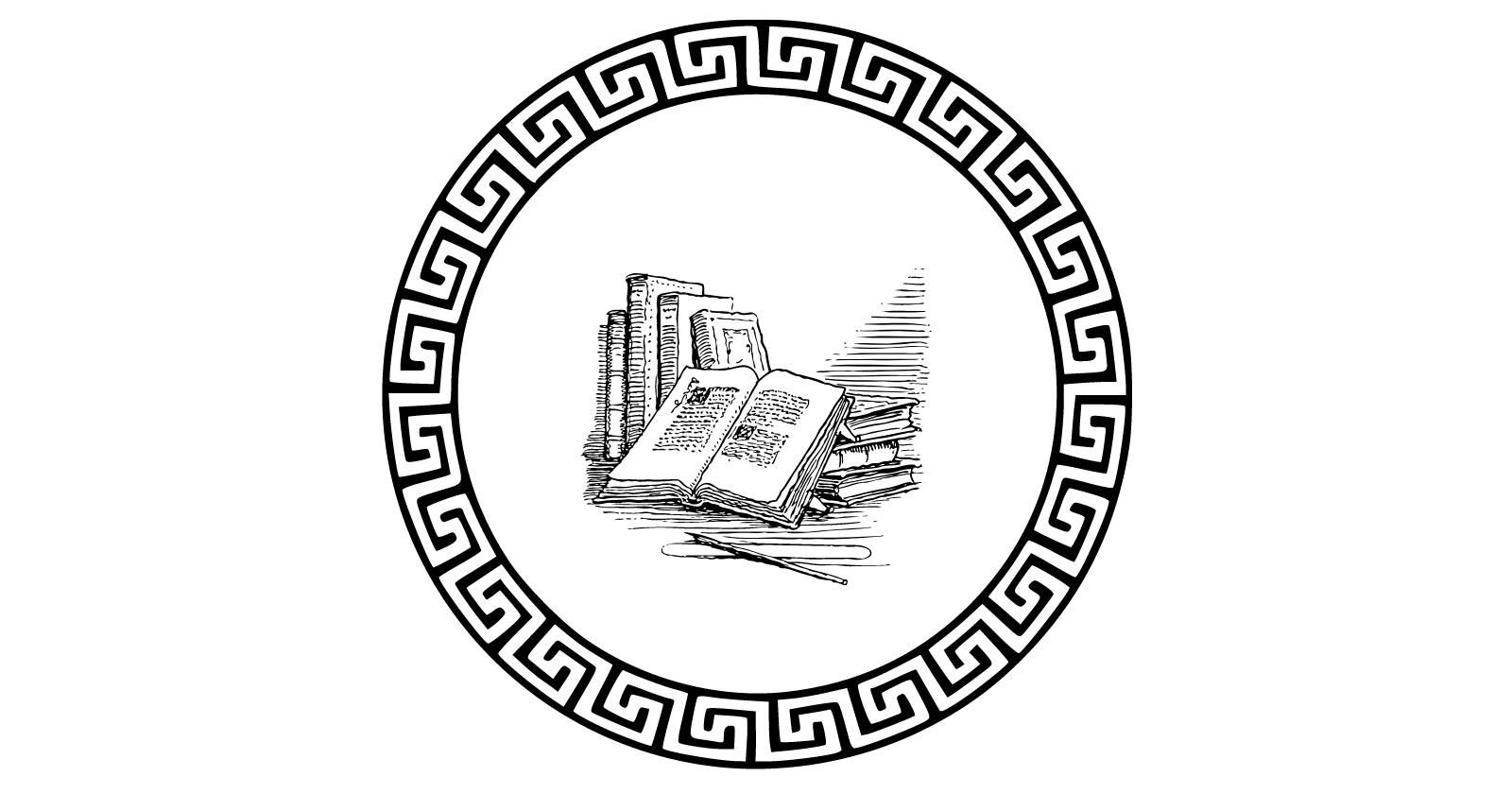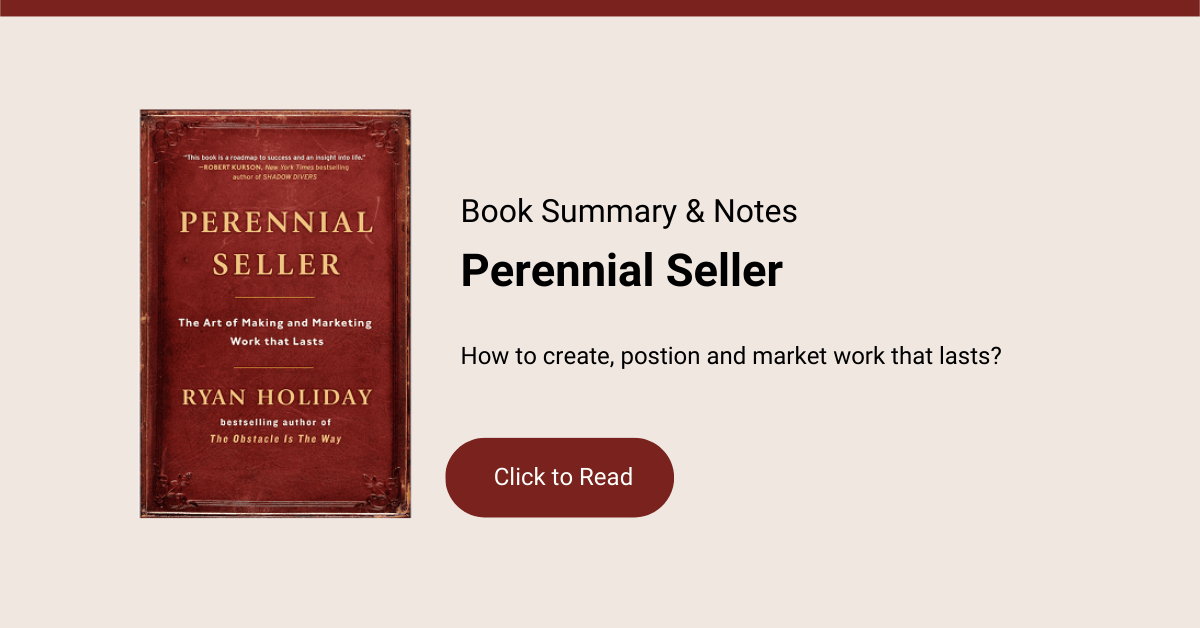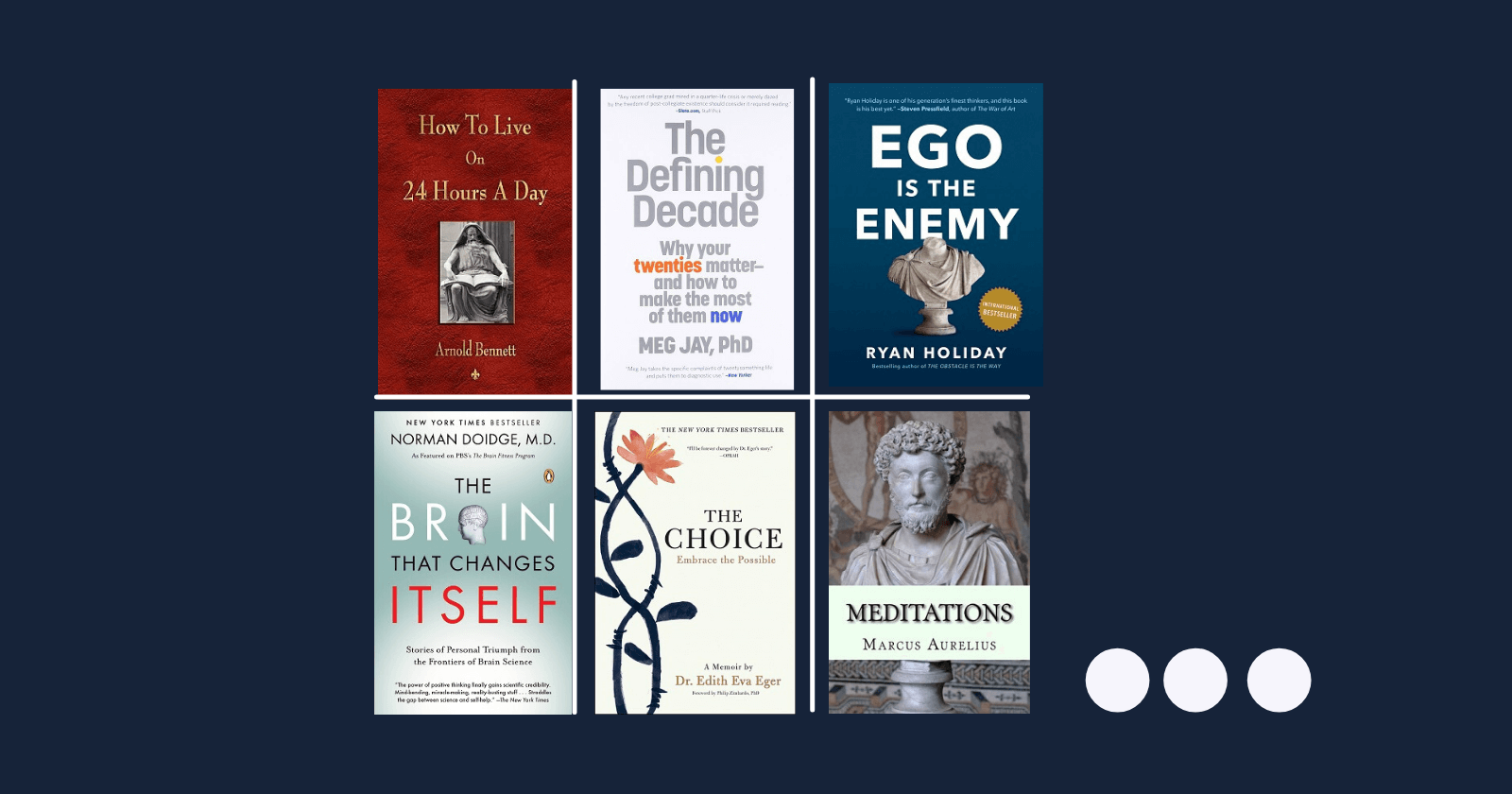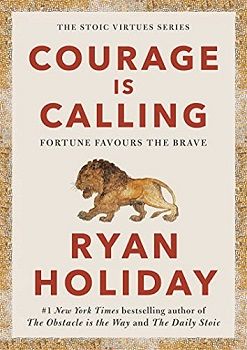Courage is Calling: Summary and Notes
Courage is Calling is the first book of Ryan Holidays' new series on virtues. The book contains stories on how to combat fear, why we should take initiative, and the cost of playing small.

After finishing his stoic trilogy (Ego is the Enemy, Obstacle is the Way, Stillness is Key) Ryan Holiday embarked on a new journey covering the classic virtues: courage, discipline, and wisdom.
This is the first book of the new series. I read previous stoic books by Ryan (and some others like the Perennial Seller) and got great first impressions of the new series.
I like Ryan Holidays' style and the way he cherry-picks great stories to prove a point. His books are probably not the best historical or philosophical accounts of the ancient era, but the way he tells stories is inspiring.
I always feel motivated after reading his books.
Covering virtues didn’t push the author to turn away from stoicism. We can still read the teachings of Epictetus and Marcus Aurelius in Courage is Calling.
In fact, I didn’t notice any change compared to the previous stoic books by the author, though I had the feeling that Ryan is running out of great stories.
Compared to his previous books I wasn’t that interested to read the long stories he researched. Even I am getting bored of Ryan’s writing or the stories in Courage is Calling were not that good.
Though there are still great learnings in the book and it is far away from being a shallow work.
I recommend you to read it, but as I usually do, I made a summary of the main point in the book below:
1. Virtues are interconnected
Though the book is mainly about courage, we got the warning early enough that courage alone is useless if it doesn’t pair with other virtues (good push to read the rest of the series).
- What is the point of courage if we use it for the wrong purpose?
- Is courage useful at all if we don’t apply it for just reasons?
We need the wisdom to decide on the path worth embarking on. Though we need the courage to make the first steps and keep going on the path.
2. Fear keeps us from destiny
It is for a reason that the most repeated phase in the Bible is:
“Be not afraid.”
Fear motivates us to play it small. Play it safe. But anything worth pursuing should be somewhat terrifying. If not, then we will stick to the status quo and won’t change anything on earth.
The Hero's Journey is a popular pattern in great stories documented by Joseph Campbell. It starts with the “call to adventure” and since the call is terrifying it follows usually by the “refusal of the call” before our hero embarks on the journey and faces trials.
In the Lord of the Rings or Star Wars, the refusal of the call holds for a few minutes.
But in real life, we can spend years sticking to refusing our call:
Florence Nightingale who revolutionized modern nursing knew that there are great problems with the organized care for wounded soldiers.
She wanted to help, but family and fear kept her from embarking on the journey.
She spent 16 years after the “call to adventure” refusing the call. She saw that if she doesn’t do something nothing will change, then she embarked on the journey.
What is the lesson here?
Fear holds back even the greatest.
But if it is your call, then you can’t escape it.
3. Agency Is Taken, Not Given
Why did Florence Nightingale embark on a journey to help the wounded?
Even after 16 years of waiting?
Because she realized that no one is coming to help her. No one was coming to solve the problems she saw in the world.
She realized she has to act or nothing will change.
There is a growing trend that started in the twentieth century and getting even more popular: the notion that nothing matters.
No religion, no patriotism, no values.
Taking agency means you have something that is valuable to you. Valuable to preserve, or important enough to confront others.
4. The dangers of playing small
The cost of playing small is the opportunity of what you leave on the table.
The what could have been.
If your life never requires courage then your life is boring. Fear is a sign. If you don't fear, you don't push yourself.
But what if you are paralyzed by fear and can’t make a choice? Not acting is an action by itself. It is a vote for the status quo.
5. Fortune favors the bold
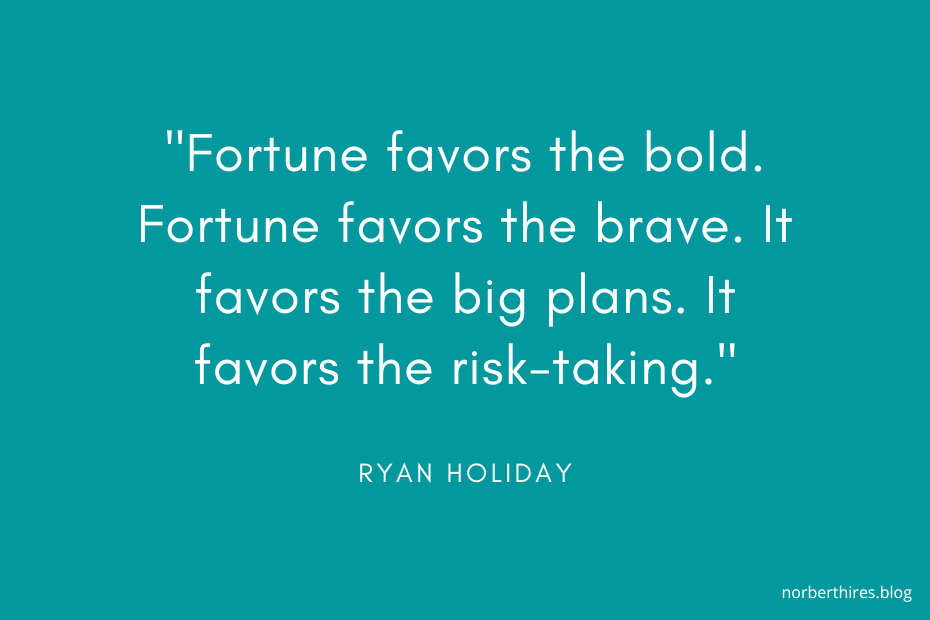
We already read about how important is not to wait for others, but to take responsibility for issues that are important to us. We learned the dangers of playing small.
The author here shares the unorthodox answer of General James Mattis to the question:
"What keeps you up at night?”
“I keep people awake at night.” - answered the general even before the question was finished.
This is the mindset of initiative. The mindset of agency. The mindset of courage.
And we can read many more inspiring answers and stories like this in Courage is Calling.
6. When violence is the only answer
It is far from Ryan Holiday to promote violence in his books. He is not doing that now either but rather points out that there are situations when the only answer is violence.
When you are pushed to the edge.
Or as Gandhi suggests:
“Where there is only a choice between cowardice and violence, I would advise violence.”
The limited choices and the need for aggressive action were present much earlier than Gandhi used nonviolent resistance.
In ancient Greece a spartan general once said:
"Violence is rarely the answer—but when it is, it’s the only answer."
7. Courage is about taking the necessary risk
Staying with Spartan warriors we can learn about a soldier who shows us the difference between courage and recklessness.
During a battle against Theba, a Spartan warrior rose above his peer, showing incredible bravery in fighting the enemy. But after the battle, he got fined by the city’s rulers because he endangered one of the most valuable assets of Sparta.
He took off his armor during the fight.
He endangered himself.
"Courage is about risk, but only necessary risk. Only carefully considered risk.”
My Favourite Quotes from Courage is Calling
"If people bring so much courage to this world the world has to kill them to break them, so of course it kills them. The world breaks every one and afterward many are strong at the broken places. But those that will not break, it kills. It kills the very good and the very gentle and the very brave impartially." - Ernest Hemingway
" As we got older—as Seneca grew powerful in his own right—it conveniently escaped us that we were the ones who needed to come to the rescue.”
"The opposite of fear is love. Love for one another. Love for ideas. Love for your country. Love for the vulnerable and the weak. Love for the next generation. Love for all."
Related Readings
